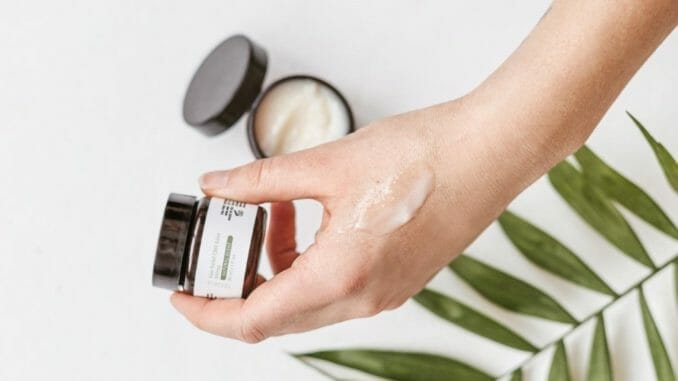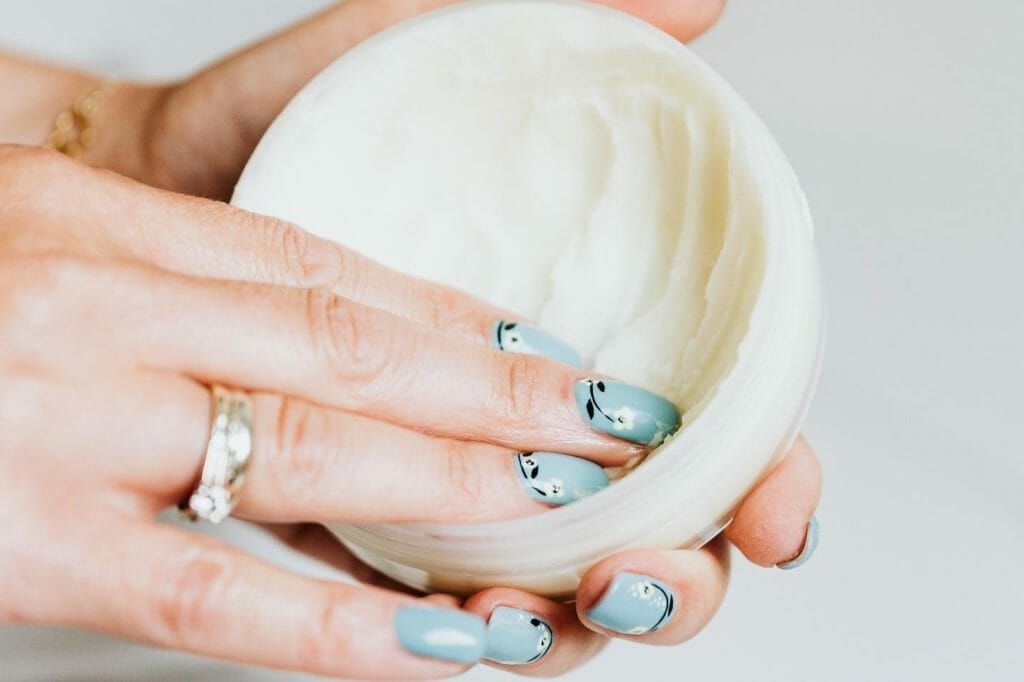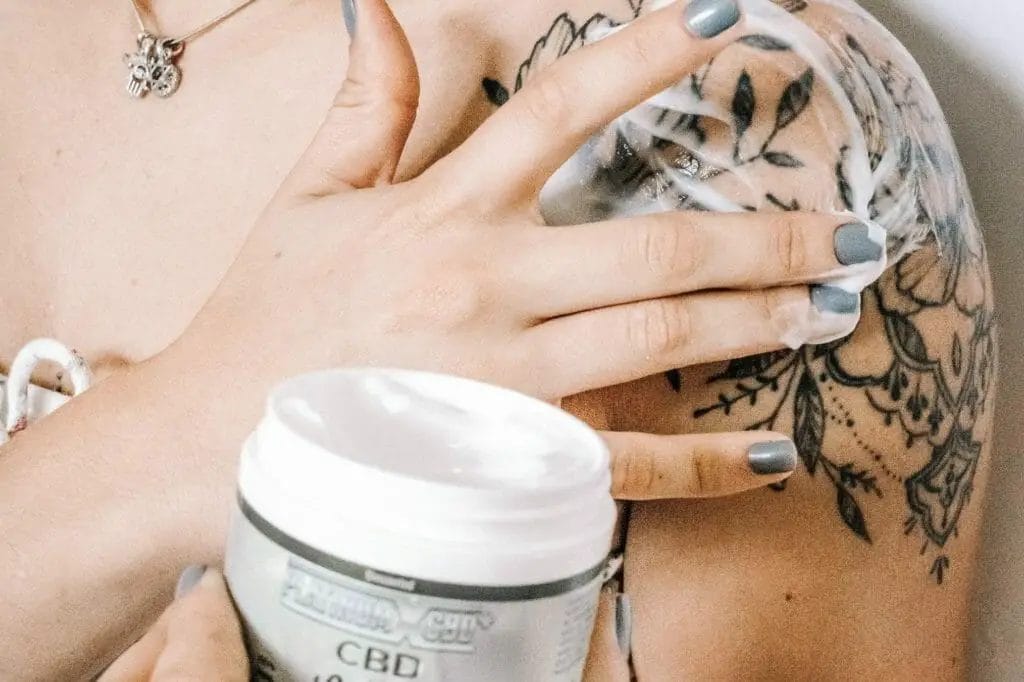
CBD is accessible in topical forms, including creams and lotions, which the skin can absorb if you want pain treatment. Innovations that combine cannabis botanical components with other tried-and-true painkillers have been made possible by new laws and technological developments. Thus, more therapeutic products are being introduced to the marketplace every day.
However, not all CBD products are equal, and they vary significantly in terms of quality, cost, formulation, and the promises they claim to deliver. And the most important distinction is the CBD concentration and presence of THC in the content. Even despite the legal advancements in cannabis legalization, THC remains a banned psychoactive compound.
Thus, as soon as you plan a travel with a bag of your favorite skincare products containing CBD, it’s vital to do your homework and study the laws of your destination country regarding CBD and THC. Here we walk you through the legal issues you may encounter with CBD topicals in Denmark.
Understanding CBD
Cannabidiol (CBD) is one of 100+ cannabinoid compounds extracted from cannabis plants to create a wide range of medicinal and recreational products. There are two major types of cannabis – marijuana and hemp – regulations on which vary in Denmark. As public opinion on CBD is quickly changing, governments are under pressure to determine how their drug laws and regulations will best fit the rising consumer demand for these products. Even the European Union (EU) has recognized the rise in demand and tried to harmonize the regulation of CBD products in its member states. In Denmark, CBD laws and rules are heavily influenced by the EU legal framework on cannabis products, though the Danish regulations have evolved quite significantly in the recent past.
Thanks to the amendments to the Executive Order on Euphoriant Substances passed in July 2018, consumers can now access CBD products without a doctor’s prescription. The only requirement is that cannabis-based products contain up to 0.2% tetrahydrocannabinol (THC); these are no longer classified as euphoriant substances. If the THC level in a product is above 0.2%, then it is considered illegal, and the importation, exportation, and possession of such products is considered illegal.
The Danish Medicines Agency keenly supervises CBD-containing products marketing; it demands that a registered Danish company license each medicinal product for sale and distribution. Though the importation or exportation may not be illegal, strict laws regulate each CBD product, and you should keenly consult the regulations before buying any of them.

Prevalent CBD Myths
With the growth of cannabis-based products, there has been a rise in the number of articles regarding the products and what they can deliver. Some of the information on the internet is factual and helpful though there are plenty of unverified details concerning various aspects of these products. This article focuses on dispelling some common myths about topical CBD products. Here are some of the most prevalent misconceptions about CBD and the actual truths.
Myth: CBD Will Give You a Euphoric High
Fact: CBD can decrease anxiety, but it does not impair judgment.
CBD is a non-psychoactive chemical compound, meaning it does not impair mental activity, efficiency, or performance, unlike THC, which generates the feeling of being stimulated or high. CBD and THC bind to the same pain-relieving receptors in the central nervous system, which modulate sensory cells. Both compounds are believed to have medicinal properties for dealing with similar symptoms or conditions, such as joint pain, muscle aches, and alleviation from insomnia, stress, and fatigue.
Myth: A Drug Test Will Detect Any CBD Topical Product Used
Fact: CBD products won’t likely interfere with a drug test.
CBD, derived from hemp or cannabis, typically does not manifest on drug tests like other weed byproducts. THC is a distinct cannabinoid that may be detected in a drug test such as marijuana. Keep in mind that CBD topical products like creams and oils may also include minute amounts of THC (typically less than 0.3%), so there is always a slight potential of receiving a false positive. CBD isolate products developed for therapeutic purposes carry a much lower chance of causing someone to fail a drug test than CBD oils or edibles, which may include trace amounts of THC due to the possibility of cross-contamination.
Myth: All Topical CBD Products Are the Same
Fact: The quantity and efficacy of topical products containing CBD differ significantly.
Since CBD is still a developing market, there may be some uncertainty about the efficacy of various products. It’s crucial to look for trustworthy items from businesses that follow industry best practices in medicine, science, and treatments in a market with few set source, quality, and dose criteria.
- Safety and quality. Investigate the company’s or product line’s standing in the marketplace. Choose manufacturers and labels that can prove their products are free of harmful chemicals and substances, have received excellent user ratings and comments, and have not made any claims they cannot back up.
- CBD type. Ensure the cream contains CBD isolate or broad-spectrum CBD rather than full-spectrum CBD. The first two have minimal to no THC or other chemical compound cross-contamination. Broad-spectrum CBD may contain terpenes, aromatic substances found naturally in cannabis that may reduce inflammation, pain, and anxiety.
- Potency. Verify the potency of the CBD topical product. You should get at least 2 milligrams of CBD per pump and 300 mg per 50 mL bottle.
- Natural ingredients. Keep an eye out for naturally occurring substances that can amplify the positive effects of CBD. Arnica, menthol, aloe vera, and eucalyptus are examples of oils, extracts, and supplements that help target pain at their source to provide topical relief that is safe and effective.
- Proper labeling. Carefully read the labels and contents, and remember that although hemp oil and CBD are connected, the latter may not necessarily be present in cold-pressed products such as hemp oil.

Myth: Topical CBD Products Can Be Addictive
Fact: CBD-rich lotions and creams may lessen your dependence on narcotics.
Medical professionals have widely recommended opioid medicines to relieve severe pain temporarily. Opioids are not intended for long-term use to treat chronic pain, but it is incredibly challenging to cease using them. Opioid use has dangerous side effects that can lead to addiction, even among individuals who desperately need the drugs to alleviate pain. In 2019, approximately 10.1 million Danish residents abused prescription narcotics. Government agencies are now focusing on mitigating this crisis by encouraging physicians to pursue alternative opioids as painkillers.
The FDA recently identified “reducing the rate of new opioid addictions” as one of its top priorities, and opioid prescribing parameters are being tightened. It appears that CBD may be able to assist people living with chronic pain in avoiding the adverse effects of the opioid epidemic. One study used CBD to treat chronic pain instead of opioids. Over 94% of the subjects reported improved quality of their lives, and more than half of them could cut back on or stop taking opioids.
Myth: CBD Ingestibles Are Always Superior to CBD Topicals.
Fact: Topical therapies are sometimes preferable to oral medications.
Compared to oral drugs, topical therapies typically offer several desirable benefits. Most of the time, they result in a significantly reduced number of systemic adverse effects and have the additional advantage of providing medication directly to the location of the pain. CBD creams and lotions possess a wealth of therapeutic potential for treating chronic pain and specific disorders.
There is increasing evidence that CBD has a calming impact on the central nervous system, which holds promise for treating conditions like anxiety, epilepsy, and schizophrenia. CBD has shown efficacy in treating neuropathic pain (pain caused by nerve irritation or injury). In a recent, limited, randomized, placebo-controlled trial, CBD topical oil significantly reduced pain in peripheral neuropathy patients compared to placebo.
Conclusion
Danish customers are becoming increasingly interested in CBD products as the cannabis business there expands quickly. With a large selection of premium-grade CBD products that are both safe and efficient, everyone can find an item individually suited to their health needs and preferences. We recommend choosing only CBD topicals created from the best organic hemp available and undergoing extensive testing to guarantee their strength and purity – you can find a list of safe and efficient products of this type at askgrowers.com/cbd/cbd-topicals. Furthermore, due to recent changes in Danish law, it is now permissible to use CBD topical creams as long as the THC content in your CBD oil is less than 0.2%. This means you can benefit from CBD’s many attributes without worrying about breaking the law.
This material was prepared by Lana Braslavska, an expert in cannabis use and product selection and a full-time blogger at AskGrowers. Lana is dedicated to helping consumers find their optimal CBD picks to improve their life quality and derive optimal health benefits from safe CBD use. She educates the audience about the newest research findings in CBD research and brings the cannabis market closer to people.

Be the first to comment